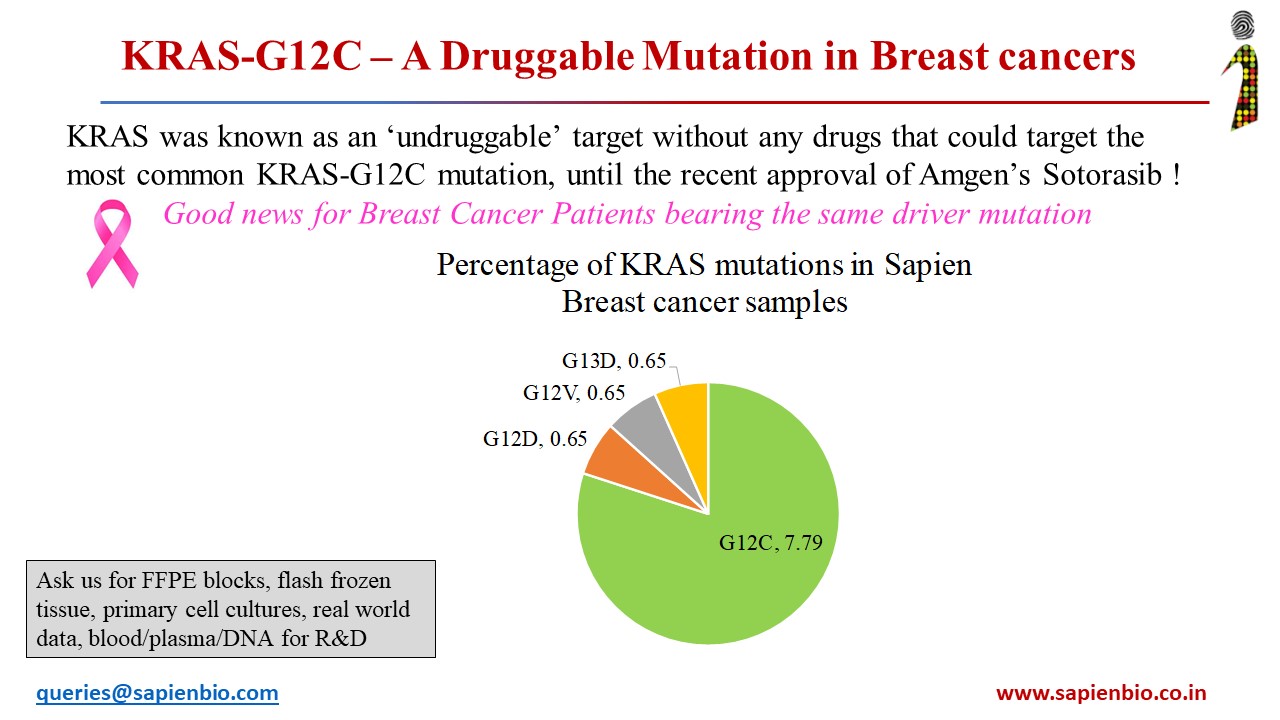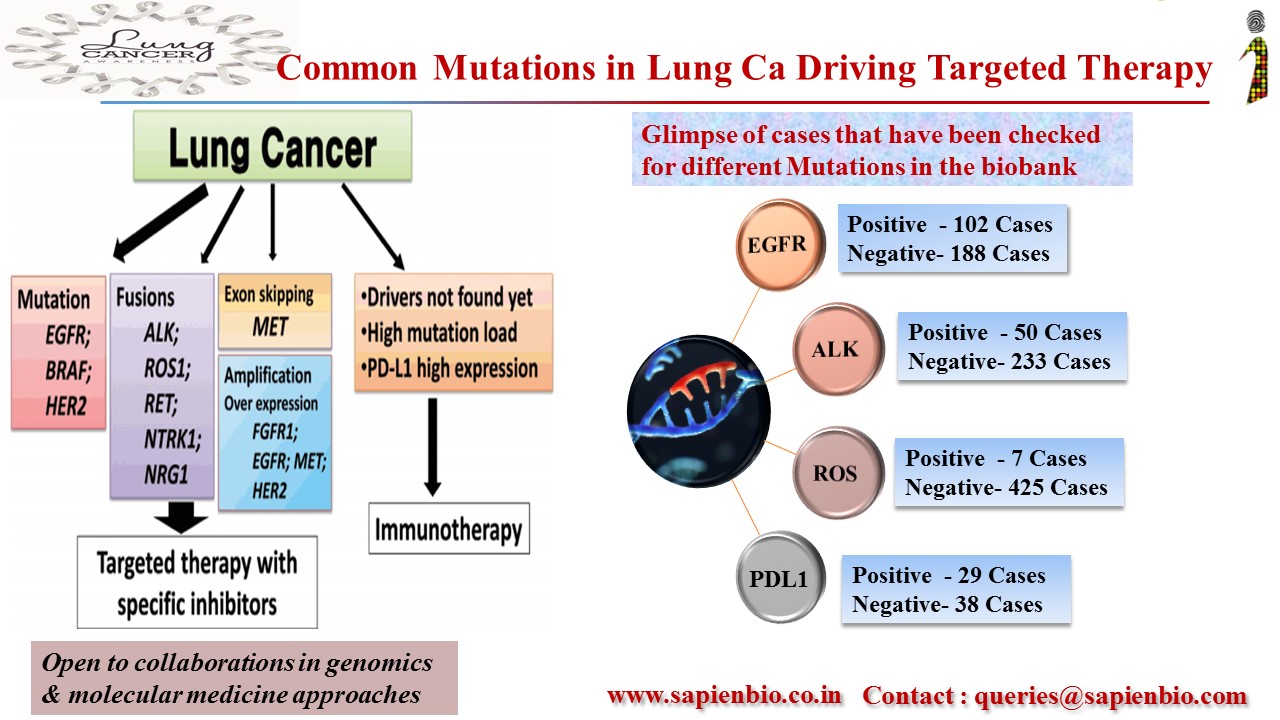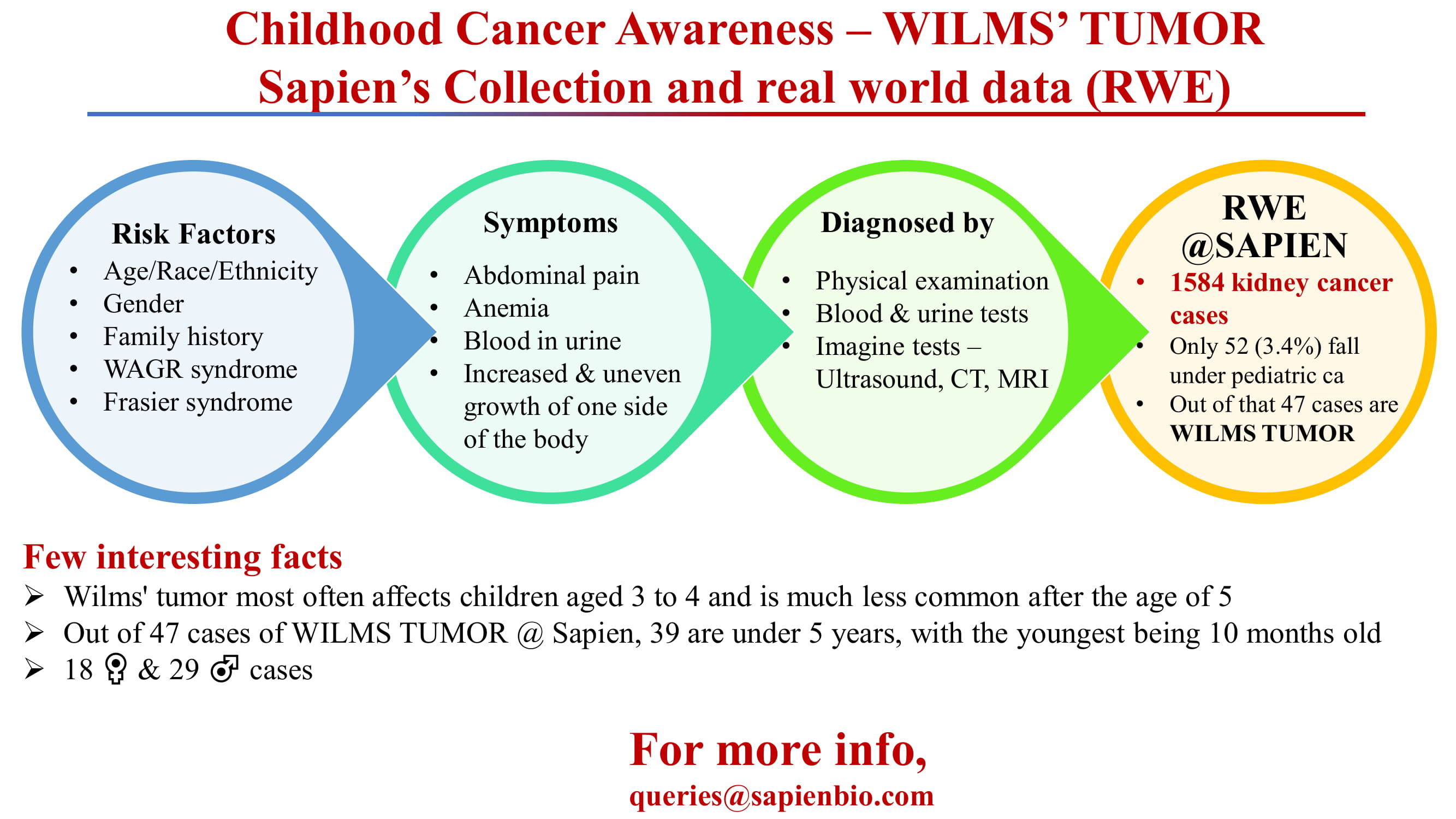KRAS mutations in Breast cancer may be treatable
For decades, mutations in #KRAS have been known to cause cancers in multiple organs and the gene KRAS itself was considered ‘undruggable’. Of the many mutations, KRAS-G12C is known to occur in nearly 13% of #NSCLC cases. There were no known treatments that can target KRAS-G12C mutation until recently. May 2021 heralded the #fdaapproval of Sotorasib, granted to #amgen, for treatment of #lungcancer with the G12C mutation in KRAS. Exciting results showed a reduction in tumour burden in more than 37% of the trial participants. This paves the way for testing the efficacy of the drug in multiple other cancers harbouring this driver mutation.
Our data identified nearly 7.8% of breast cancer #FFPE samples bearing the KRAS-G12C mutation, bringing hope of this #drug to people with #breastcancer.




Recent Comments